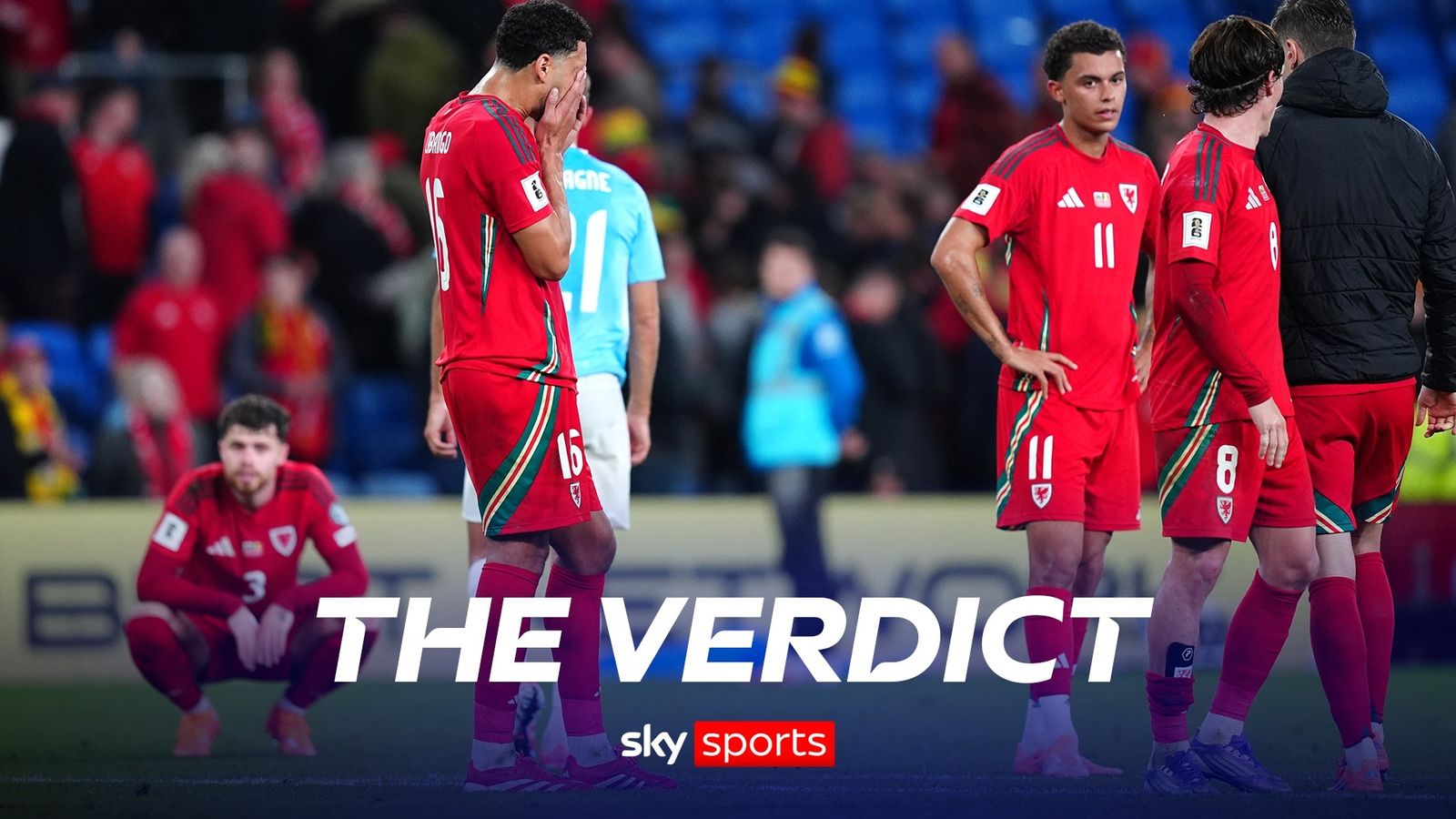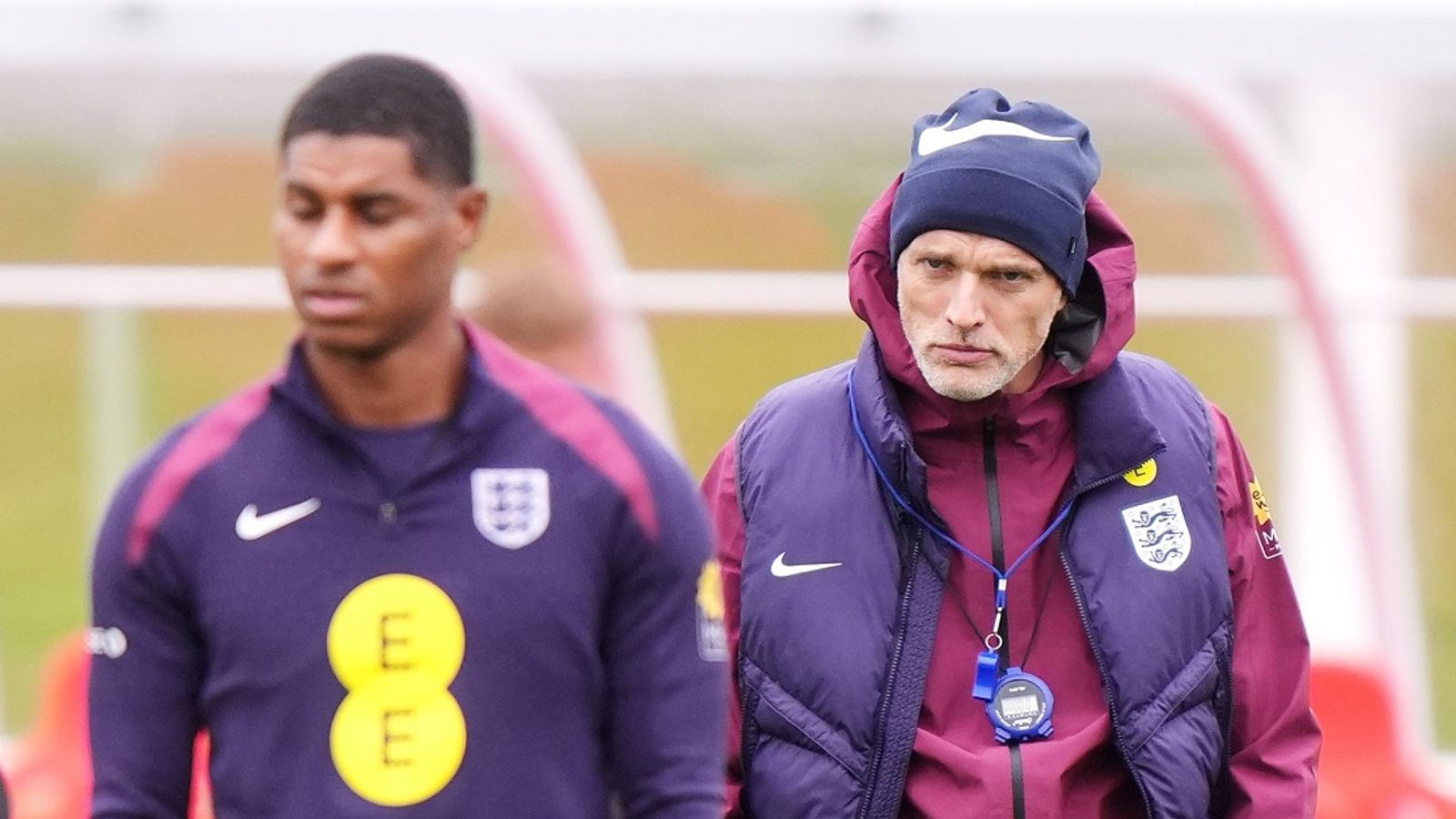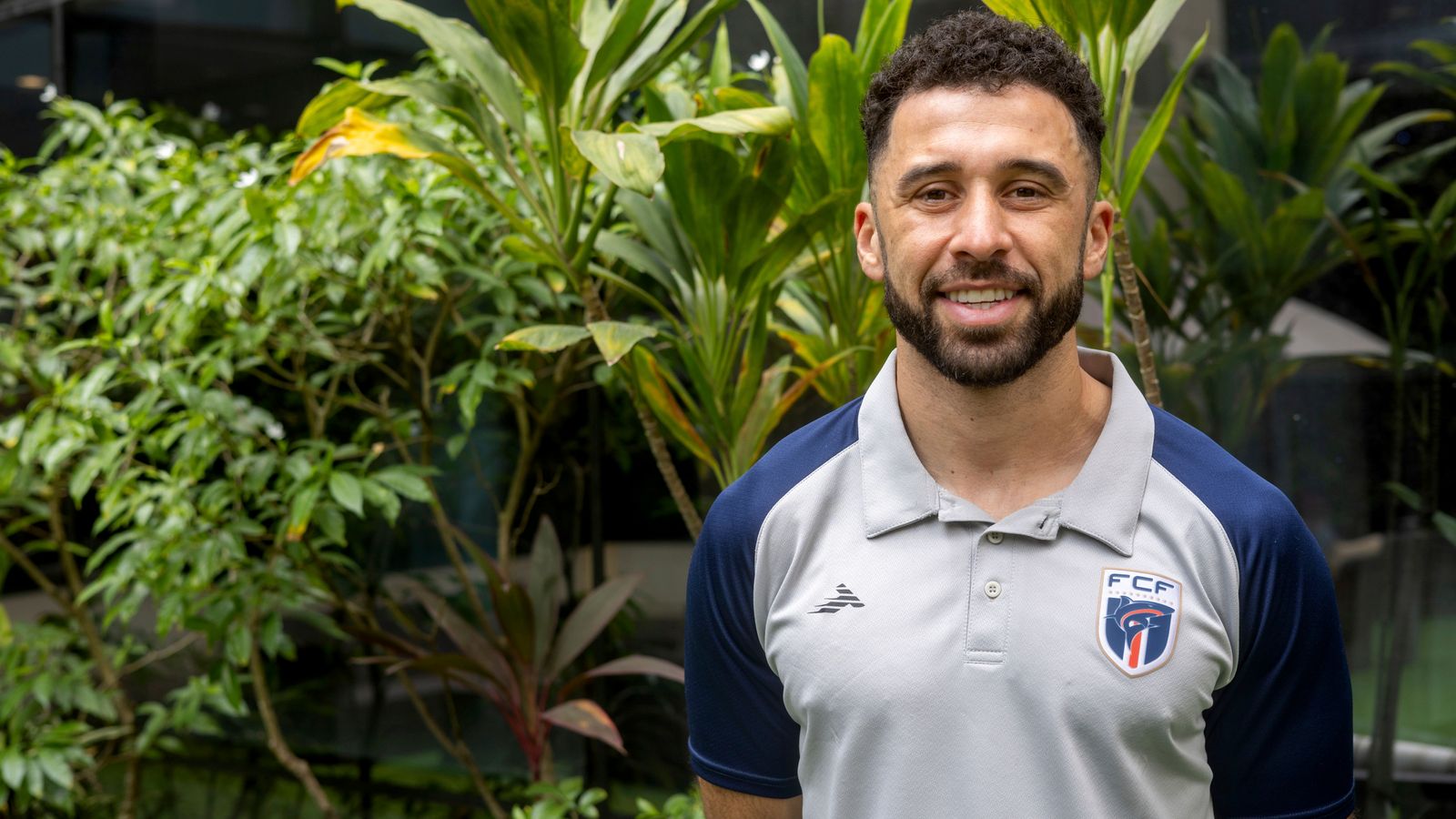In a career that spanned the best part of two decades, Mark Phillips played in seven of the top eight divisions of English football.
He achieved his dream of making his debut for boyhood club Millwall, won the League Two title with Brentford in 2008/09, finished as an EFL Trophy runner-up at Wembley and played almost 400 times in all.
In March, he found out he had done so with an undiagnosed neurodivergence.
Seven months on from what the 43-year-old calls a “life-changing” ADHD (Attention Deficit Hyperactivity Disorder) diagnosis, he speaks to Sky Sports about how it has impacted his life, how he believes it impacted his career in hindsight and how he wants to inspire the next generation of neurodivergent children.
Listen to the full conversation
Phillips recently visited Sky Studios to sit down with Sky Sports digital football journalist Dan Long to discuss his ADHD diagnosis.
The conversation is available to listen to in full on the latest episode of the Sky Sports Essential Football Podcast.
Phillips’ journey to a formal diagnosis
“Before my diagnosis, ADHD never crossed my mind. Admittedly, I was very stereotypical in my view of what it was in young children or young boys of hyperactivity, which I’m now fully aware it’s not.
“When my playing career ended, that’s when some differences really came out. I just put it down to the broad statement that most professional footballers struggle after their career and how to fill that void, but that didn’t fully make sense to me.
“Equally a few difficult things happened in my life. My dad passed away suddenly from motor neurone disease and a few challenging things covered it up as well. The PFA helped with counselling, which helped and was good in the short-term, but it didn’t really make the longer-term difference I was looking for.
“It actually came about through my own son’s diagnosis. He was having a tough time at school and we were having conversations around ADHD and how that might look in my house. Then I saw things on social media about adult ADHD and how that presents – and the things I was seeing made complete sense.
“I was very fortunate to be able to pay for my own diagnosis. It was a one-hour interview with someone very close to me, a few questionnaires – one for me, one for the person that’s close to me, one for my mum – secondary school reports which are real eye-openers because I spin quite positively on situations.
“Those GCSE years made for quite tough reading where I thought it was a great time at school with my friends, playing sport, but actually the teachers were talking about not fulfilling potential and being disrespectful, which I know I’m not, but looking back now, it’s how these things have had an effect on me.
“Then I had the three-hour assessment with the doctor – and it was unreal. I don’t think I can put into words how powerful those three hours were. Even to this day, I still feel emotional talking about it because it was life-changing. When I got those words ‘You’ve definitely got ADHD of the combined type’ there were floods of tears.
“It was confirmation there was a reason why I felt the way I felt and struggled for so long. It was justification it wasn’t my fault and I wasn’t broken. It just explained so many different things to me.”
‘I would hyperfocus on games, but beat myself up over tiny mistakes’
“The exercise levels you experience as a professional footballer help regulate your emotions and help regulate lots of parts of ADHD or neurodivergent traits. You know the structure in your life in terms of training and games, too. You’re settled, you know the plan and you haven’t got to take care of that side of it.
“Football is my love, it’s my passion, it’s everything for me. I’d hyperfocus on the game and perfecting every little detail. The preparation of the games was perfect for me as a neurodivergent and how I think.
“But I now know how much pressure I put on myself through games. I was a perfectionist, so even the smallest things led to thoughts that I didn’t have a good game, even if I had a great game.
“I always joked I didn’t need a manager or coach to highlight things, even though they always will. Players already know this, but as a neurodivergent, you feel it even more so.
“The football world is very much looking forward to the next game and that, with the neurodivergent brain, didn’t allow me to recognise my success and how well I was doing.
“It’s a football ethos, but as a neurodivergent, it didn’t allow me to remember my successes. I was going into each game like a new game, remembering my strengths, but not really fully believing it because the negative side of the ADHD wasn’t managed at that point.”
‘Being averse to change meant I missed out on chances in Scotland and Belgium’
“Footballers moving clubs is a normal part of the game. Any player would would feel worry about, whether this is the right move for their families with the upheaval involved. It’s not a comparison kind of thing, but I’m aware of the levels of how I wasn’t comfortable with change.
“There was some political stuff going on at Millwall at one time and a contact told a Scottish team about me and how I was an up-and-coming youngster doing really well. I flew up there, did a training session, did a medical and they were really keen on me signing quick as I could. But the change just wasn’t feeling right.
“On that flight back, I remember thinking ‘Get me home where I’m more comfortable and where I know the surroundings’. I don’t really like regrets, but they had Rangers away the week after and then Celtic away the week after that and, if I had shone in my month or two-month loan, who knows where that could have gone?
“It was the same with the Belgian team Genk. I knew Bob Peeters from Millwall and the club approached me to make a move. Again, the idea of change and self-doubt crept in. I didn’t pursue it and I felt more comfortable not pursuing it rather than going a little bit further and pursuing it.
“I really think I would have loved those opportunities, but I always like to look forward and use it for a positive and that’s why I want to help players who might not be diagnosed to understand these things because they can be just managed and optimised. It’s more the non-management of it that affects your life – that knowledge is just so powerful.”
Understanding is key
“Being diagnosed has brought so much optimism. I wasn’t in a great place so I decided to go down the medication route, which allowed me to see things that I’ve never seen in normal life, like feeling happiness, feeling elation and things like that which were quite difficult to get to.
“I called a couple of my best friends and I said ‘When you go out and you hear a great tune, is this how you feel?’ I’ve been into music and DJing since I was 13 and never felt those kinds of feelings. It’s all around the dopamine levels and your lack of production as a neurodivergent.
“My communication is a lot better now. I’ll ask if I don’t understand, but equally I’ll try to understand the other way. We’ve got the same brains, but it’s like they’re on different processing systems.
“I can get overwhelmed and some tasks used to make me like a Kevin and Perry-type teenager! I now understand that the overwhelm, so it’s about stepping back and being more relaxed about it with this new understanding.
“I was trying to live that grind, that chase, that constant work and I was constantly in burnout. My eyes would be watering each day and I’d live on coffee. I’ve really come to terms with knowing my physical load, but also my mental emotional load.
“I know I can’t do everything and so I’m building teams with other people, rather than trying to juggle everything, which has given me real excitement for the future and where I could go.”
‘Undiagnosed neurodivergence is prominent in football’
“I was Googling recently, trying to find other neurodivergent footballers. There were some female footballers, there were some footballers abroad, there were a few footballers with a diagnosis – but not a lot.
“I’ve been in changing rooms, I’ve seen the way a lot of footballers are very similar. I’m not saying that means they are neurodivergent, but we see it every week, an emotional outburst from a certain player or a player might get a bad decision or something they really feel injustice about and they can’t let it go. The game goes on and you might see them get sent off.
“I’m not saying these are reasons but they’re things I would see week in, week out that were not explainable. Then I’d see the aftermath of the regret, the guilt, the letting the team down and the realisation of what’s gone on. It’d be unfair for me to start diagnosing people because I’m the last person to do that, but the traits are very apparent in the changing room.
“It’s quite common for people to say ‘I’ve got a little bit of ADHD’ these days and I do think we all have traits. It starts becoming a problem when it’s really affecting your life negatively and that’s actually something that you need in your assessment to be diagnosed, it needs to be having an impact on your life in a negative way.
“The PFA are doing really great work to push clubs to offer assessments for players that request them as a a standard. I’m working closely with them and I’m really keen to be using my undiagnosed lived experience of the game to help others.
“In my everyday life, I’ve come across a few people that aren’t sports people, but when I’ve shared a couple of stories – nothing too personal or over the top – the look I get when their face lights up is really powerful.
“They feel like they’re seen, so imagine if the PFA and clubs can get involved and sports people and players can feel seen and be themselves, rather than what they feel they have to be. Imagine what that’s going to do to the game of football as a whole, let alone them as an individual helping their team.”
‘I want to use my diagnosis as a force for good’
“I recognised, through my football academy, that I love making a difference.
“I was lost for a good while, not knowing what was going on with this, so I want to help other people find themselves. I really think I can use my professional background to help raise awareness and break that stigma. Our differences need to be celebrated and so many neurodiverse qualities can be brought to the game.
“I created a website (thendfootballer.com) as an information point to direct people to YouTube channels I’ve learned from, books I’ve found really powerful, professional help. I’ve created a YouTube channel and socials. I learned through social media and that was how I got to where I am today.
“I’ve been reaching out to businesses and government organisations to go into schools, not just assemblies but to run workshops, too. The earlier people are diagnosed the better, because it allows that learning and understanding about themselves and how they function.
“I’d love to work with the PFA, the EFL and other organisations about going into clubs to do talks. Then players understand about it but so they can be successful in professional football, but not detract from who they are as a person, which I found I did quite a lot through my career in terms of masking and creating characters to fit in.
“I want to inform as many people as possible about the reality of the condition because it can be really dark. It can be tough, but it really can be a strength when you accept it eventually and improve your life.”






Leave a Comment